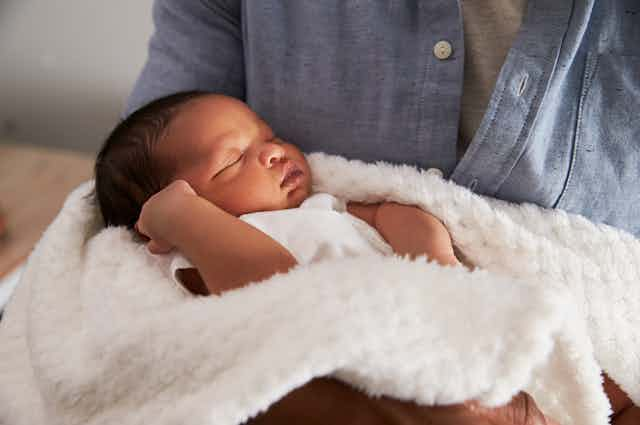Sweden has consistently reported some of the lowest rates of maternal and child mortality in the world. Unfortunately, these achievements don’t extend to foreign-born mothers who face higher risks for all forms of negative pregnancy outcomes.
The COVID pandemic was a strong reminder of the gaping health inequities when providing care to these women. Foreign-born mothers reported higher rates of infection, intensive care admission, preterm birth, underweight babies and stillbirths compared with Swedish-born mothers.
Afra (not her real name) is one such case. Her baby died in the womb soon after she caught COVID in her third trimester. She grieved how utterly the healthcare system had failed her when she was referred to the university hospital for a consultation. “No one told me that COVID could be dangerous for the baby,” she told me. “I asked my midwifery-centre, and they said nothing. I was not even advised to take the vaccine!”
Afra’s story is one of many that highlights the difficulties foreign-born mothers face in the Swedish healthcare system. Despite being universally available and free for all mothers, why is one of the leading healthcare systems in the world failing to protect its foreign-born citizens?
The reason is simple. It lies in the very fabric of the Swedish healthcare system, namely the principle of being impartial and providing the same resources for all. The system does not recognise that, due to their socioeconomic status and ethnicity, foreign-born mothers require additional resources to achieve the same outcomes as Swedish-born mothers.
Almost one-third of all Swedish births are from foreign-born mothers. This number has increased from the 1970s, where only 11% of all births were from non-native mothers. With this growing number, it is high time to dissect the reasons for these inequities and find solutions to address them.
For example, the tools already at our disposal could be used to identify and map these inequities and where they are occurring. The evidence-based guidelines used in the Swedish healthcare system are backed by several high-quality registers that document patient outcomes at the population level.
Childbirth care is documented by the Swedish Medical Birth Register, which has been collecting maternal, medical and neonatal data for almost five decades. The register covers 99% of all births in Sweden – but hardly any data specific to socioeconomics, such as race or ethnicity, is collected.
Of the few variables collected, country of birth is one and job status is the other. This means that the most valuable tool available to maternal healthcare professionals is essentially impaired from identifying how health inequities can affect birth outcomes.
Language barriers
Communication barriers due to a lack of proficiency in the Swedish language in foreign-born mothers is a large challenge in this regard. Many maternal healthcare professionals, including midwives, report this as a huge issue and struggle to adequately understand non-Swedish speaking mothers.
In high-risk situations, like during an emergency caesarean section, such communication barriers may be critical and can even cost lives.
Also, there is limited understanding of how these language barriers affect foreign-born mothers’ overall understanding of the care they are receiving and their experiences of the quality of care provided. Future research would be key to understanding this knowledge gap.
An interesting solution is the use of what are known as “cultural doulas” to help increase healthcare availability and support to foreign-born mothers through their pregnancies, especially during childbirth.
Doulas are people without specific medical training, but whose cultural and language proficiency can be involved in a woman’s pregnancy and childbirth to give emotional, social and psychological support. They have been found to reduce caesarean section rates and improve the overall quality of care.

Of course, not everyone is keen on this idea. With an already heavily taxed population, and the healthcare system losing many millions of Swedish kronor per year, maternal healthcare and research have never been high on the priority list.
But if these changes were made, Swedish maternal healthcare could contribute significantly to improving outcomes for foreign-born mothers and their babies. By addressing this issue head-on, we can ensure that all mothers receive the comprehensive care they deserve, regardless of their origins.

